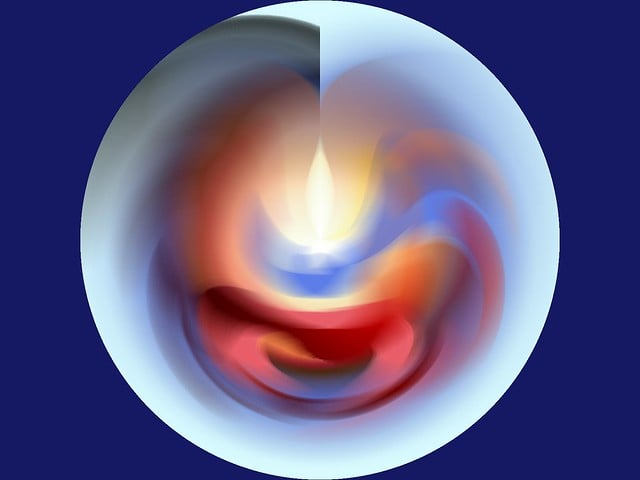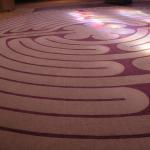
Do We Need to Be a Mystic to Become a Monk?
Many of us think of monastic life as filled with people who are particularly cosmic.
Some of us see people in monastic life as different from us. They dedicate their lives to living into spiritual life in ways the rest of us have not. Our focus is on the differences between us and not the similarities which bring us together.
We may assume monks can somehow tap into the reaches of spiritual life which are beyond us. They seem to approach life in ways which can feel a little spooky.
It is easy for us to believe we would need to be a mystic to become a monk.
Do we even know what it means to be a mystic? Some of us confuse what it means to be a mystic with having the quality of mystique. We think of mystics as people who live lives of mystery and intrigue. Some of us believe mystics can understand hidden meanings or symbols in ancient texts.
People who are mystics seem to be able to reach beyond what we can sort out analytically.
The dictionary tells us mystics are people who seek unity with spiritual life by contemplation. Rather than intellectually trying to understand, they surrender themselves to union.
Some mystics talk about allowing themselves to be understood by spiritual life instead of trying to understand it.
It is a challenge to describe the process by which mystics discern meaning in clear, satisfying ways. Their explanations can sound unclear to those of us who are immersed in analytical reasoning.
How would we approach the task of finding meaning if we did not rely on intellectual analysis? What challenges would we need to overcome to become mystics?
Why would anyone want to be a mystic?
What Does It Mean to Be a Mystic?
It may be difficult for us to appreciate why anyone would want to be a mystic. Few people set out in life to be a mystic.
Many of the people I know who become mystics have what they often call a mystical experience. Spiritual life engages them in ways they cannot explain at a particular time in their lives.
For some people it is a matter of grappling with ideas or concepts they realize are beyond them. They begin trying to unravel a specific aspect of spiritual life and reach a point where they must stop. Some of them arrive at a place in their intellectual pursuit which causes them to question what they are doing.
Does analyzing this, trying to understand, really make any difference? Is there any way to put this into words? What practical difference does this actually make?
We may begin trying to understand spiritual life as a set of basic truths. The harder and longer we work to gain a comprehensive grasp of those truths the less we seem to have.
Being a mystic does not mean what we believe is not significant. We grow toward mysticism as we recognize the limitations on our own abilities to analyze and explain.
All that can sound confusing to someone who has not experience with what it means to be a mystic. It can be a challenge to explain why this is a step forward when it sounds like several steps back.
Being a mystic is about beginning to appreciate what we do not understand. Trying to explain what is beyond our understanding, or what it means to be a mystic, is challenging.
Some of us are uncomfortable with the idea anything might be more than we can understand.
When We Begin to Be a Mystic
I do not believe there was a point in my experience at which I decided to be a mystic.
My own process of becoming more of a mystic has been a significant element of growth for me. Gradually I turned from searching for answers to being open to questions. Life has gone from trying to nail things down to exploring possibilities.
We are no longer trying to categorize or explain or analyze spiritual life. For many of us spiritual life is transformed from a list of rules or boxes to check into a relationship.
Some people describe mysticism as poetry compared to the prose of trying to explain spiritual life.
Beginning to be a mystic helps me realize, and admit to myself, life is mystical. There is more to life than what we can measure and organize and categorize. Each day offers us an array of possibilities which can overwhelm us.
Some of us struggle to analyze what we see while others live into the experience of union with spiritual life.
Many of us begin to be a mystic as we enter into a new way of seeing spiritual life.
How Do We Begin to Be a Mystic?
Beginning to be a mystic does not mean we never try to understand anything.
As we begin to be a mystic we appreciate the beauty of how things are. We recognize the complexity and intricacy, the intimacy and immediacy of life around us.
Even when life does not unfold as we would prefer it to we appreciate how it fits together.
We begin to be a mystic and grow into a realization of how we fit into the world. Other people and the rest of the world and spiritual life are not here to help or serve us. There is a healing whole into which we all fit together.
For many of us the spark of beginning to be a mystic is appreciating we are not the center of the universe.
We have our own mystical experience and respond by stopping where we are. Being a mystic is about sitting still, closing our eyes, taking deep breaths, and listening.
Spiritual life flows in us and around us and we begin to be a mystic.
Do we need to be a mystic to become a monk today?
When will we begin to be a mystic this week?
[Image by erix!]
Greg Richardson is a spiritual life mentor and coach in Southern California. He is a recovering attorney and a lay Oblate with New Camaldoli Hermitage near Big Sur, California. Greg’s website is StrategicMonk.com, and his email address is [email protected].












